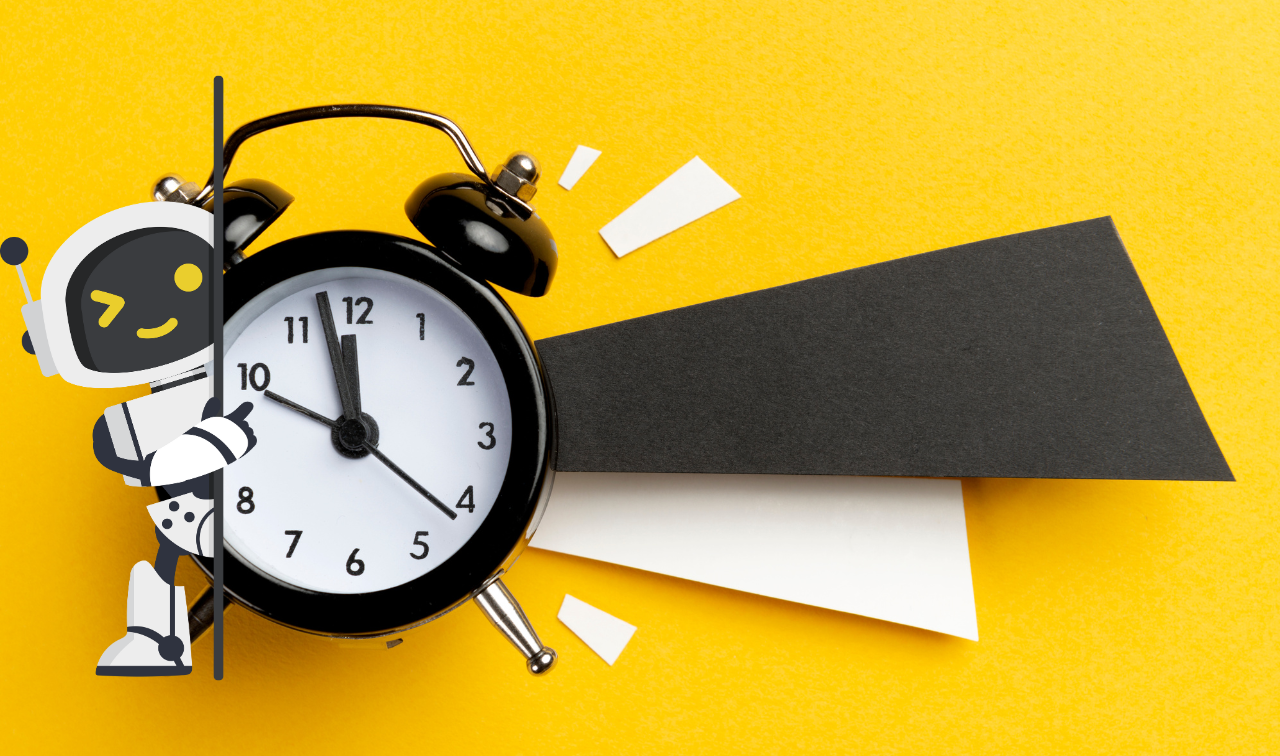Will Artificial Intelligence really steal journalists’ jobs? Here are ten things you need to know7 min read
There is no doubt that technological development is refining machines (computers, calculators, electronic devices) to such levels of precision that their capabilities appear more and more similar to those of human beings.
Artificial Intelligence or AI, i.e. the ability of a machine to demonstrate human capabilities such as reasoning or planning, is in this respect one of the fastest developing areas of technology. And those who have been lucky enough to benefit from the services offered by Contents.com know something about this!
However, this frenzy is in a way starting to scare some of the ‘flesh and blood’ professionals: there is indeed a fear that in the future AI will completely replace the human intellect. But is this really the case?
Let us try to shed some light on the matter, explaining in 10 points what the benefits and risks of using artificial intelligence in content creation might really be.
Can AI really replace a journalist?
It is worth dotting a few ‘i’s’ with respect to certain fears that experts in the written word might have about AI and its potential impact on the news industry. Indeed, there are some myths to dispel and topics to debate, here.
1 . AI will not steal journalists’ jobs
Although certain processes can indeed be alleviated thanks to AI, the ability to understand what processes need to be developed will forever be the prerogative of the human being.
It is no coincidence that today, Artificial Intelligence in the context of journalism is mainly concerned with completing the most tedious and repetitive tasks, such as transcribing interviews or publishing a company’s financial results.
2 . AI is not what you might think
Movies have accustomed us to thinking of Artificial Intelligence as a machine that can in fact replace a human being, often even in features. But this is, in fact, only cinematic fiction.
3. Sometimes AI is even superfluous
Some problems can certainly be solved with the help of AI; others, however, could be handled by different, even more practical and economical means. The Artificial Intelligence that a platform like Contents.com uses, for instance, is just one of the possible solutions for content creation, certainly in certain journalistic contexts where a more in-depth analysis is preferred, or in the scientific field where the content to be dealt with is very specific, its use would be completely unnecessary.
4. No point using AI without a strategy
Let’s imagine that you have already ‘done your homework’: you have assessed your specific case, clarified what AI can and cannot do for you, and come to the conclusion that it can indeed be useful to you. Now is not the time to sing victory, because AI implementation can be a bit of a ‘cat out of the bag’ without a clear strategy.
Sometimes people think that AI implementation is a simple process, but this is not necessarily so. The truth is that depending on your case and the type of technology used, the process itself could be much more complicated than your initial expectations.
Automatically optimising the paywall (i.e. paid access to the content of a website) to generate as many subscriptions as possible, is quite a different matter from filtering user comments: these are two completely different applications of AI!
5. Where to find AI tools
It has been said that Artificial Intelligence can provide journalists and companies with the tools they need to create content. But where can one retrieve such tools?
There are basically two options: you can rely on a tool that integrates AI with human creativity, as is the case with Contents.com, or you can think about developing your own AI tools in-house. In the second case, of course, the expenditure of time and economic resources will be considerably higher.
6 The irreplaceable talent
One of the main challenges companies face when they want to approach Artificial Intelligence is finding or developing technical skills to implement in their projects. The problem is that in the world of journalism, few people use AI compared to other sectors that are certainly more advanced in its use.
But the difference between journalists and other experts is that in their work they are not only driven by profit, but also by the desire to report. There is no Artificial Intelligence that can replace their talent and their ability to work for the greater good, i.e. a more aware and informed society.
7. The role of collaboration
Projects based on artificial intelligence can and often must be based on collaboration between various experts in the field.
It is possible that people in other newsrooms are facing the same challenges and aim to build the same kind of content a journalist is working on. It matters little if they are direct competitors, or if they live on the other side of the globe. When it comes to Artificial Intelligence, collaboration between professionals in the same field is vital.
Think of the exchange of information between journalists in the case of an investigation into online ‘hate speech’: thanks to Artificial Intelligence it will be possible, for example, to automatically filter and analyse a series of racist, sexist or homophobic comments published in different languages.
8. No anxieties
It is often difficult to keep up with scientific and technological discoveries and, consequently, with the new opportunities that improvements in Artificial Intelligence offer.
The watchword is ‘no stress’: for the creation of your content, always apply the knowledge you currently have about AI but choose to update as soon as possible, remembering the saying ‘knowledge is power’.
9. Artificial Intelligence learns
Artificial intelligence, which is based on machine learning systems, is not perfect: it can make mistakes and it is therefore important that journalists do not blindly rely on it but are fully aware of both its benefits and limitations.
Can an algorithm be sexist, racist, homophobic? Sometimes yes, because like all products of human ingenuity, computer algorithms also bear the imprint, positive or negative, of those who created them. This is why in recent years the scientific community dealing with AI has been paying more and more attention to identifying, and possibly mitigating or eliminating, the biases that can lurk in these systems.
“When someone applies a machine learning algorithm, it is difficult to control its behaviour,” explains Philip Thomas, university researcher. “But machine learning algorithms increasingly affect our lives and it is therefore of paramount importance to ensure their fairness to avoid harm.” Based on his studies, however, he believes there is huge room for improvement in artificial intelligence tool learning.
10. An opportunity for improvement
In general, journalists should see AI as a valuable resource for gathering data and information and, consequently, for providing better and more accurate journalistic work. Artificial Intelligence should therefore be seen as an ally, and not as a dangerous enemy.
Bottom line, Artificial Intelligence and journalism: enemies or allies?
Following this quick examination of the topic, it is clear that the fears of some journalists may be somewhat exaggerated.
Data in hand, in order to better explore the relationship between AI and journalism, the London School of Economics recently surveyed some 70 newspapers in 32 countries. It emerged that artificial intelligence can certainly support and enhance the work of journalists, but to do so requires not only overcoming cultural resistance to it, but also developing a plan to have the financial resources to invest in it and certainly implementing knowledge on the subject.
Technology can be an ally of the journalist and the key reveals it in an interview with Marco Pratellesi, a pioneer of online information: ‘AI is a helper: the journalist has to know how to manage it to enhance his work’.
To discover all the advantages of the integration between Artificial Intelligence and human creativity, in the world of journalism but not only, we invite you to explore the services offered by Contents.com, a generative artificial intelligence platform that supports in the conception, creation and transformation of content.
Activate the 7-day free trial to discover all the tools Contents.com puts at your disposal.




